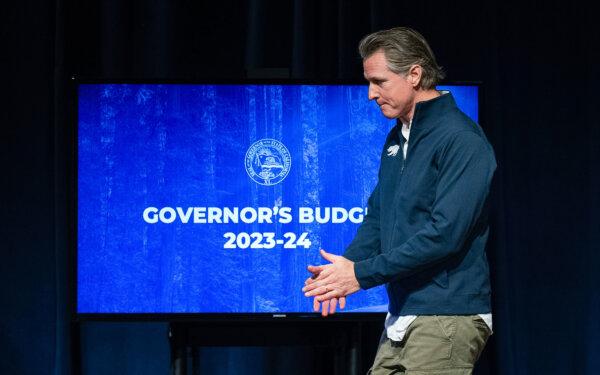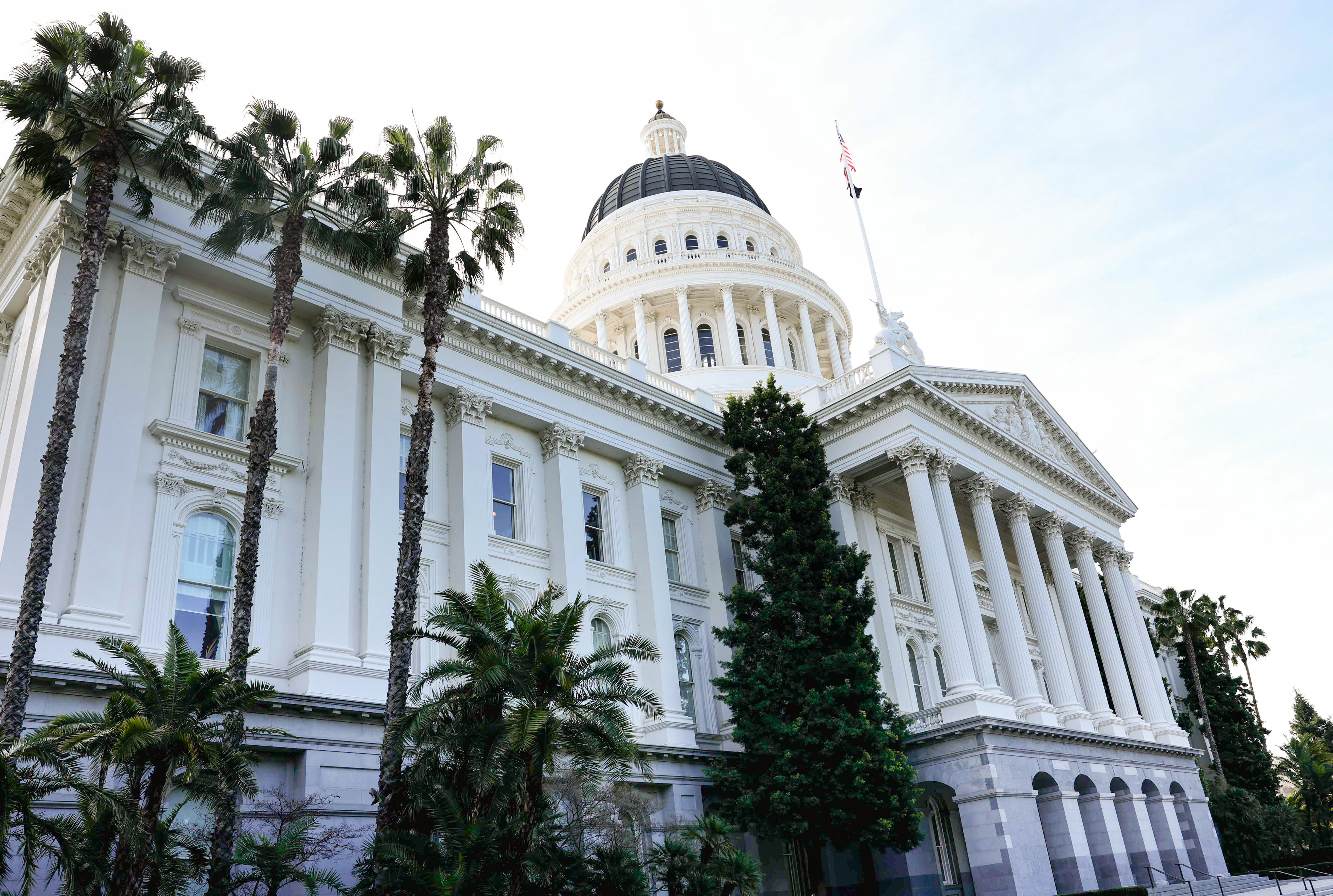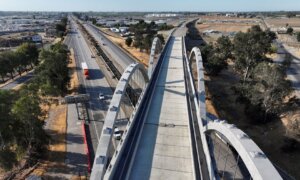With the state facing a record deficit of $73 billion while carrying approximately $1.6 trillion in debt across local and state governments, the nonpartisan Legislative Analyst’s Office advised lawmakers that aspects of California Gov. Gavin Newsom’s budget proposal are potentially unconstitutional.
At issue is a plan to apply an existing payment from the 2023–2024 fiscal year to the following year for the California Public Employees’ Retirement System, better known as CalPERS.
“We think the proposal for redirecting 2023–2024 payments to pay for employer contributions in 2024–2025 would essentially be a supplanting payment,” Ann Hollingshead, principal fiscal and policy analyst for the analyst’s office, told The Epoch Times.
A constitutional amendment established with the passage of Proposition 2 in 2014 mandates minimum annual debt payments until 2030—meant to reduce the state’s unfunded liabilities. Existing debt in the state’s pension systems are covered in part by employees, but the state is responsible for most of the amount owed, as mandated by state law.
By replacing instead of supplementing the required payment, the proposal “appears to be unconstitutional,” according to the analyst’s office.
“There are two basic requirements regarding how supplemental debt payments have to be spent,” Ms. Hollingshead said. “One, is it has to be in excess of the amount required under law, and the second one is it has to supplement instead of supplant the amount that the state would have otherwise paid for the fiscal year or the following fiscal year.”
The state’s Department of Finance suggested that directing CalPERS to apply prior payments to reduce required contributions in the 2024–2025 fiscal year would save $1.7 billion in the current budget year—with $1.3 billion in general fund savings.
Pointing to Prop. 2’s mandates, the analyst’s office voiced concern about the plan.
“We do raise concerns about the use of 2023–2024 debt payments,” Nick Schroeder, principal fiscal and policy analyst for the analyst’s office, said during an Assembly Budget Subcommittee on State Administration hearing on April 2. “In particular, we think that the proposal ... would be a violation of Prop. 2.”
The analyst’s office proposed three alternative solutions in a March 20 report, including maximizing short-term savings, spreading savings across budget years, and prioritizing long-term savings.
“[These] would likely be constitutional and have similar financial benefits,” Mr. Schroeder said during the hearing.

California Gov. Gavin Newsom leaves the stage after delivering his budget proposal in Sacramento, Calif., on Jan. 10, 2023. (José Luis Villegas/AP Photo)
Considering the budget deficit, the analysts suggested that some short-term solutions could be beneficial but advised that long-term approaches would ultimately save the state money by reducing interest payments owed.
“After the state emerges from this period of more acute budget problems, we would urge the Legislature to return to its longstanding policy of maximizing long‑term benefits associated with Proposition 2,” the analysts’ report states.
The finance department disagreed on the amount potentially saved by the pension payment proposal and the depth of the budget deficit—with the office reporting a $38 billion deficit, slightly more than half the total estimated by the analyst’s office.
“We would need additional details to fully evaluate, but as we understand the alternatives, we don’t believe it would be a similar magnitude of savings,” Noelle Fa-Kaji, finance budget analyst with the state’s finance department, said during the hearing.
She suggested that the amount saved by the analysts’ alternatives would be closer to $885 million, instead of $1.3 billion.
Lawmakers noted the discrepancy in the two offices’ opinions and said more insight is needed.
“Obviously, it’s a big number that we’re talking about that we want to get right, or we have to deal with a pretty significant issue down the road,” Assemblyman Chris Ward, a subcommittee member, said during the hearing while requesting advice from a legislative counsel.
His fellow Democratic colleague concurred.
“I definitely think we need more information and analysis on this,” Chair Assemblywoman Sharon Quirk-Silva said during the meeting.
The budget plan will be updated with a May revision from the governor due by May 14 and vetted by lawmakers in the following weeks.














